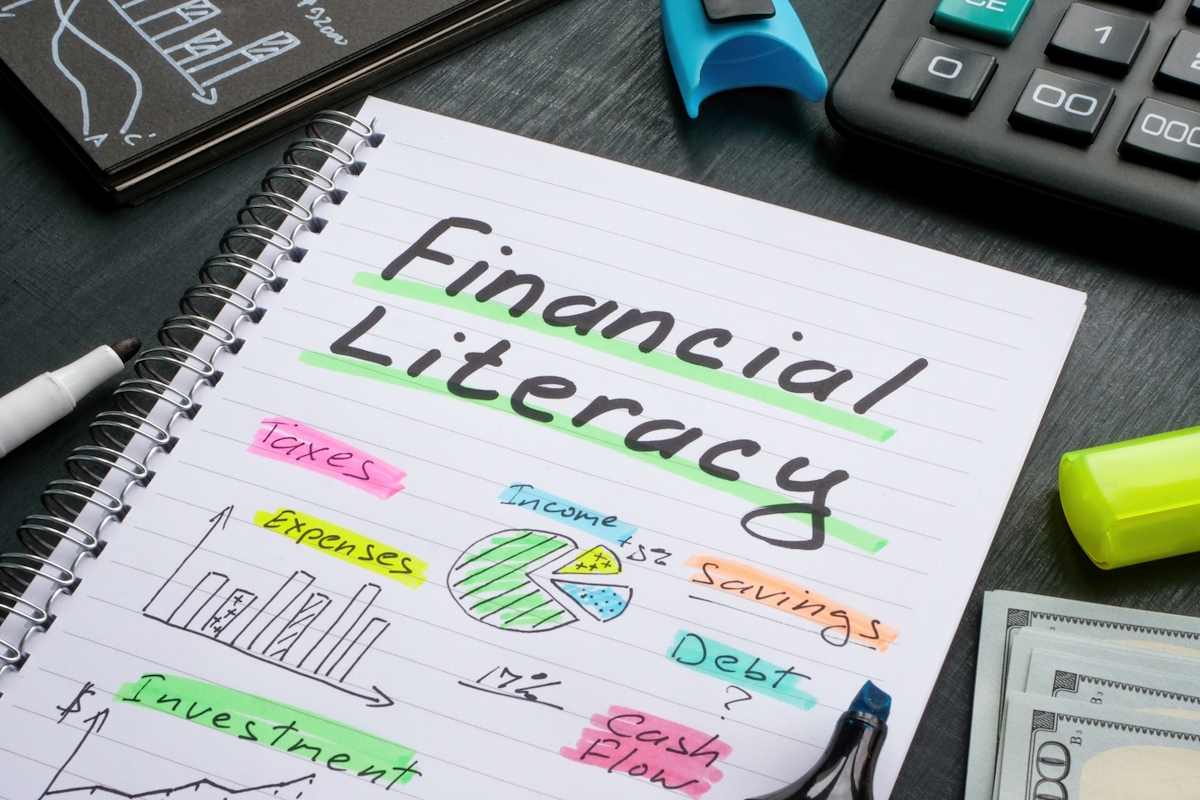Promoting financial literacy in the UK

Bruce Martin at Tax Systems explains why financial literacy is key to security, prosperity and a stable society
The general election is, of course, a hot topic across the UK currently - and this won’t end after we have visited the polling stations on the 4th of July, and the next political leader has been chosen. Over the coming weeks, months and years, all eyes will be on the next government to see if their promises will come to fruition, with tax and finances high among the agenda points.
Given that finances are such a priority to the public, it is perhaps surprising that a recent Forbes article has uncovered that much of the UK is financially illiterate, and that the country currently holds one of the highest levels of household debt in the world.
This apparent lack of awareness in key financial areas like taxes, interest rates, insurance, budgeting and saving, has a drastic impact on people’s ability to make well-informed decisions.
Prosperity and politics on the line
Considering this lack of financial literacy, how can people be expected to make informed decisions about the election or, more generally, but equally importantly, sound decisions in their day-to-day lives?
And whilst the saying goes that “money can’t buy happiness”, there is a general agreement that financial security provides a solid foundation for success, stability and peace of mind. As per Maslow’s hierarchy of needs, money shapes every aspect of life, from paying for basic needs to opening doors for fulfilment and development.
Therefore a basic understanding of national fiscal policies will not only enable people to manage their own finances better, but also to contribute more actively to the country’s economic stability and resilience. A financially literate population is more likely to participate actively in the economy by increasing productivity and encouraging innovation and entrepreneurship. This in turn drives growth and social mobility.
Improved financial knowledge also creates a more engaged society, capable of distinguishing between political rhetoric and credible facts and figures.
It is, therefore, not surprising that tax and finances are consistently a significant area of contention within elections. This year, the UK has the highest level of debt witnessed in 60 years, and taxes are at a record high - something set to continue, with the think tank IFS saying rises in the next five years will be near impossible to avoid, regardless of which party is elected on 4th July.
Those without a fundamental understanding of monetary issues may struggle to evaluate how the next government could impact personal ethical values or financial goals. After all, revenue from taxation pays for resources such as education, healthcare, infrastructure and even household services such as rubbish collection.
There is always a reaction to taxation policies, and rightfully so. As everyone heads to the ballot, the lack of financial literacy is bound to heavily influence the political outcome, and thus the fiscal direction of the UK in years to come.
Financial literacy landscape
Furthermore, there are differences in the extent of financial literacy among the UK public. Interestingly, this is most evident between varying age groups, according to new research by Tax Systems, in partnership with YouGov.
The research looked at opinions about companies that don’t pay the correct amount of tax. It found that fewer than half of the adult population said that they were less likely to engage with organisations that minimised their corporation tax. Perhaps even more worryingly, a third said it didn’t matter.
The research highlighted indifference by Gen Z, with more than two-thirds still willing to engage with organisations that minimise tax payments and 28% unsure about whether it would make a difference. These findings could be attributed to many things, including the fact that over a quarter of 18 to 24-year-olds seek financial advice from TikTok, and less than a quarter can answer four out of five basic financial literacy questions.
One thing that is certain from these findings is that there is clearly a need for more emphasis to be put on financial literacy and the impact that things such as tax avoidance have on society. Without further emphasis being put on helping younger people form an opinion on financial matters, the UK’s 11th spot ranking for having the highest household debt is unlikely to change for the better.
Making financial literacy attainable
Arguably then, developing financial literacy in childhood is essential, not only for breaking generational cycles of debt but also to equip children with the critical skills needed for a successful adulthood.
From budgeting effectively, to saving for future purchases and making wise decisions about investments, financial education lays the groundwork for living within one’s means rather than beyond them – the short-term glamour of which can certainly be appealing, but which leads to a lifetime of debt.
But who is responsible for educating the generation of tomorrow? There are obvious childhood role models, such as parents, other family members and teachers, who can demonstrate responsible practices such as budgeting and saving, and discuss finances openly and honestly.
Those already passed childhood should not consider themselves a lost cause, as there are other parties that can promote and support better financial independence in adulthood:
- Employers. The cost-of-living crisis has led to a witnessed increase in demand for financial education initiatives at work, providing employers with a great opportunity to include investment advice, debt counselling and financial planning within the list of their staff welfare benefits.
- Financial organisations. To foster responsible behaviour and build long-term customer relationships, financial organisations have started providing resources and simplifying the language used to enhance transparency and comprehension among the public.
- The Government. Whilst we are all responsible for our own and the future generation’s financial literacy, ultimately the government is responsible for defining the educational agenda, setting financial education policies and providing the necessary resources.
Educating all ages about the complexities of finances and taxes is a group effort. It is one that will clearly pay off, not only in individual day-to-day choices but also for those life-changing decisions, such as submitting a ballot based on political promises, that will ultimately shape the UK’s future prosperity.
Bruce Martin is CEO at Tax Systems
Main image courtesy of iStockPhoto.com and designer491

Business Reporter Team
Most Viewed
23-29 Hendon Lane, London, N3 1RT
23-29 Hendon Lane, London, N3 1RT
020 8349 4363
© 2024, Lyonsdown Limited. Business Reporter® is a registered trademark of Lyonsdown Ltd. VAT registration number: 830519543





